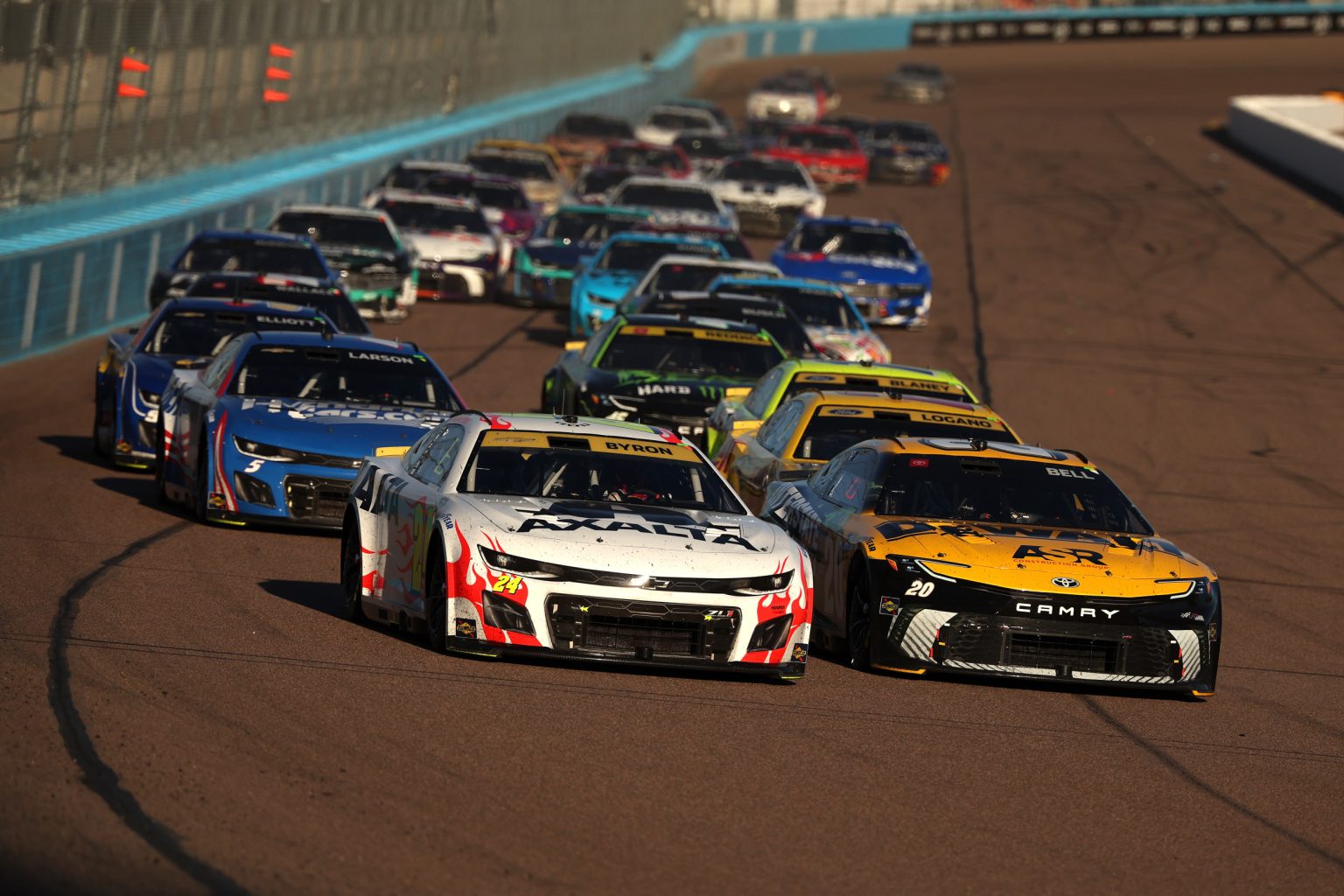NASCAR, a sport steeped in tradition and spectacle, finds itself at a crossroads. While the roar of engines and the thrill of high-speed competition remain alluring, there’s a growing sentiment within the sport that it needs to evolve to capture a broader audience and reignite the fervor of its fanbase. This call for change centers around the drivers, the very heart and soul of NASCAR, and their relationship with the public. Insiders like Jordan Bianchi and Jeff Gluck are advocating for a paradigm shift, urging NASCAR to embrace a more open and accessible approach, allowing drivers to showcase their unique personalities and connect with fans on a deeper level, much like the successful model employed by Formula 1.
The current NASCAR environment, according to Bianchi and Gluck, often stifles the natural charisma and individuality of its drivers. A culture of carefully crafted public image and controlled communication has inadvertently created a disconnect between drivers and fans. Bianchi laments this tendency to suppress drivers’ personalities, emphasizing that there’s a wealth of untapped potential within the sport’s roster. He argues that allowing drivers to speak their minds, to be themselves, would reveal the engaging personalities that are often hidden behind the polished veneer of media training. This authenticity, Bianchi believes, is the key to cultivating superstars and generating genuine fan connection. He contrasts the guarded public persona of drivers with their more relaxed and engaging demeanor behind the scenes, highlighting the missed opportunity to showcase these authentic interactions to the public.
This push for greater driver accessibility draws a stark comparison with Formula 1, a global motorsport phenomenon renowned for its driver-focused approach. Gluck points to the consistent media availability of F1 drivers, regardless of their performance on the track. This constant engagement, he argues, fosters a sense of familiarity and allows fans to connect with the drivers on a more personal level, understanding their perspectives, their triumphs, and their struggles. The contrast with NASCAR, where driver access is often limited and controlled, is evident. This more open approach in F1 has undoubtedly contributed to the sport’s global popularity, attracting a diverse fanbase drawn to the human drama that unfolds both on and off the track.
The historical context of NASCAR further underscores the importance of charismatic personalities in driving the sport’s popularity. Legends like Dale Earnhardt, Jeff Gordon, and Tony Stewart were not just exceptional drivers; they were larger-than-life figures whose personalities transcended the sport, capturing the imagination of fans and shaping NASCAR’s cultural relevance. Their rivalries, their triumphs, and even their controversies became part of the sport’s narrative, fueling fan engagement and driving viewership. In contrast, contemporary drivers, while undeniably talented, haven’t achieved the same level of widespread recognition, partly due to the constraints placed on their public image.
The argument for greater driver accessibility is not simply about entertainment; it’s about the long-term health and growth of the sport. In an increasingly fragmented media landscape, capturing and retaining audience attention is paramount. Allowing drivers to connect with fans on a personal level, to share their stories and perspectives, can foster a deeper sense of connection and loyalty. This can translate into increased viewership, merchandise sales, and overall fan engagement, revitalizing the sport and attracting a new generation of fans who value authenticity and relatability.
The parallels with other major sports further solidify the importance of personality in building fan bases. Athletes in sports like basketball, football, and soccer often cultivate large followings based not just on their athletic prowess but also on their charisma, their backstories, and their ability to connect with fans on a personal level. NASCAR, by embracing this approach, can leverage the inherent human interest in the sport, allowing drivers to become more relatable figures and creating a more compelling narrative for fans to invest in. This shift in strategy could be the key to unlocking NASCAR’s full potential, ensuring its continued relevance in a rapidly evolving sports and entertainment landscape.


